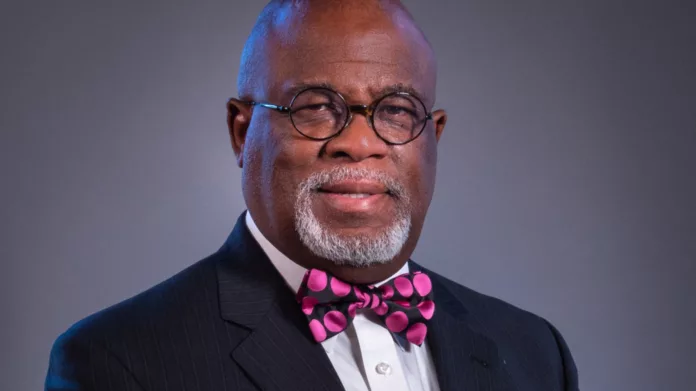The growth projected by several officials attached to the University of the West Indies (UWI) Five Islands campus at its inception is steadily being realised, with a student complement near four figures set to kick off the latest academic year.
“In 2019, we started with 174 students. We’re about to start our fifth year and we’re somewhere close to 1,000 students – that growth is phenomenal in any way you look at it, but more importantly, we have been able to graduate students each year,” said Dr Curtis Charles, UWI Five Islands’ Director of Academic Affairs, during an appearance on Observer AM.
The UWI’s fourth landed campus officially opened in September 2019 for the 2019/2020 academic year, welcoming just over 100 students in the schools of Humanities and Education, Health and Behavioural Sciences, Management and Science and Technology.
The student population has slowly been increasing since then, reaching over 600 students last year – with plans to double the current figures over the next few years – and the number of programmes available to students has also been on the rise.
That includes degrees in Computer Science and Information Technology (in the School of Science Computing and Artificial Intelligence), Banking and Finance (in the School of Business and Management) and Nursing (in the School of Health and Behavioural Sciences).
The nursing programme is of particular pride for the UWI Five Islands, partly because the country, along with a number of other territories, is well known to have a chronic shortage of nurses, and the government is banking on it to provide a steady stream of professionals for the health system.
“This year, we’re going to be graduating our first nursing cohort. I mean that’s phenomenal; these young people have been there for four years – so they were here from the beginning – and we are excited to see them [graduate].
“[We’re excited for] all our students, but especially these students, because nursing is a brutal programme and they barely have space to breathe. So, we are anxious to see them be successful in the programme,” Dr Charles explained, adding that the campus is adding even more programmes to its existing options to start the new year.
“One is the MBA programme and the other one is the Master’s of Teaching Students with Exceptional Needs – both are extremely pivotal for any society moving forward. If you look at the MBA programme, most [of them] are central to a region or a country, in terms of re-training [and] professionalising their staff.
“I think if this country and this region are to move forward, we have to embrace the MBA programme, because it’s an opportunity to increase both your theoretical [and] your practical skills,” he said.
The MBA (Master of Business Administration) is a graduate degree programme that focuses on building leadership skills and learning business principles, while it can also help to improve the standing of business professionals by strengthening their network, improving access to job opportunities and, according to the Harvard Business Review, opening the doors to a bigger paycheck.
Dr Charles also stressed the importance of the other new programme coming on stream when classes commence next week, noting the contribution it will make to both national and regional development.
“We can’t move as a region into the fourth industrial revolution if we don’t prepare the students who are in front of us in K- 12, in elementary and high school; in every society, we know there are students with exceptional needs.
“So, if students are on the spectrum, we want to make sure that we train all teachers to be able to handle all of those students. For too long, we have put these students in a bracket – students with special needs [or] learning disabilities – [so] I think what we are doing here is basically developing new teachers, but also existing teachers who have degrees should come back and definitely learn,” he said.
This programme, like many others on offer at the UWI Five Islands campus, is set to be delivered through a hybrid model (both face-to-face and online), to ensure access for those across the Eastern Caribbean and the wider region who may not be able to physically study in Antigua.

